Text
Some Thoughts after my first LARP event in a Year
I really hate unspoken social contracts, they have basically ruined the hobby for me due to ongoing anxiety around PvP and the difference between rules as written and player expectations. Which is why Pandemonium is the only system I still attend, because the rules as written are very very clear on the subject. However, I am now realizing that no matter how much I hate social contracts they are indeed a necessity in Larp to some extent.
Larp is a collaborative game, there is no defined way to 'win' and like it or not, the game is dependent on the actions of the players. While it is relatively common to have goals and 'win' conditions (Mine this weekend involved dieing a certain amount of times and trying some of the awesome ritual systems), it certainly isn't a competition in the way a sporting event is.
Slight segway to talk about story telling in general. Have you ever noticed that character in books and TV shows almost always make terrible desions? That Battle Star Galactica could have been solved in E1 if Baltar had been less dumb? How if characters actually talked with one another, or took a second to think things through a lot of problems wouldn't happen? When things go perfectly, there is no story. Without conflict there is no story. There is a reason roleplaying games don't tend to have a defined way to win. It is because failure and poor decision making is necessary for narrative. What does this mean in LARP terms? Sometimes doing the dumb thing is better because it improves the game for everyone. Sometimes your character needs to make mistakes because it is more fun for everyone involved, because it makes for a better story. There is room for playing sensible characters sure, to greater and lesser extent depending on the system, but it is important not stop other people from engaging with the game, and to give them space to do the big, epic, dumb thing if they want to. Because their mistakes will almost certainly create more game for other people.
Larp is also deeply seated around narrative. It is a game of story telling, of choices. I am a huge champion of player agency and the idea that players choices should matter. So this is where I hit my paradox. What do you do when players choose not to engage with the game in a way that fundamentally is to the detriment of other players? When 'winning' becomes more important than playing?
I firmly believe it is not the job of the refs to force players to have fun, only to provide the set up to allow the story and game to happen. Players should be free to interact with the game in the way they see fit, within the rules of the game. But as was proved to me this weekend, there is more to this idea. Players need to buy into the spirit of the game. People certainly get angry about people genning violent or non co-operative characters at games which are about non-violent or co-operative play. Why then is it not considered an issue to gen character who refuse to engage in conflict and combat in systems designed around these things?
I would like to posit that it is just as damaging to game experience to refuse to buy into game ideals at high combat high pvp games as it is on the other side of the spectrum. It is worth really reading a game pitch before attending a game and thinking about your play style. It may mean you go to fewer games, but it means you will enjoy those games more. If you do not like PvP it might not be the best idea to book a high PvP event. Similarly if you don't like combat, or character death is something you wish to avoid at all costs, perhaps a high combat, high lethality game is not for you.
I don't really have answers, but I think it is important to ask ourselves as players how our decisions affect other people in the game and I think it is important to buy into the design principles behind any games we play.
21 notes
·
View notes
Link
In light of recent conversations in the LARPosphere about player safety, my unit is trying to gather some data on assault and harassment in Dagorhir, my home game. Please take this survey and share it. Thank you!
32 notes
·
View notes
Photo
I have a essay on player agency in here!

”[The Peckforton Papers - Release Note]
January 2nd, 2018
We are excited to announce the publication of The Peckforton Papers, a book about larp in the UK. How we make it, how we write it, and how we play it. It is a collection of articles and essays about larp in the UK over the last 36 years written by larpers past and present and edited by Simon Brind, Juliet Brind, Emmylou Laird, John Shockley and Martine Svanevik
The paperback version is available for £6.40 + postage and packaging from lulu.com. This covers the cost of production and printing. It is also available as a free PDF with a choice of cover images. http://www.wychwood-end.com/publications.html
We hope you enjoy it!”
Hey it’s @accesslarp and @encounter21 :D
19 notes
·
View notes
Text
Lessons Learned From my Last Event
Last weekend I ran my first weekend long game in a completely original setting. It was a one off horror game focused around creating a high threat, high leathality, high pvp experience. I will write up a proper debrief at some point, for myself even if I don’t post it, but here is my quick dirty list of lessons

photo by @tokoeka
1. NEVER decide that the number of PCs at time in is a plot critical thing. You will have dropouts. 2. Don’t assume the crew will go to sleep, and be careful with your wording of instructions for all night camp attacks. It worked out, but it was a bit of a shock when I woke up to find the players had been attacked in their beds every 1/2 hour all night (I am very proud of the dedication of my crew, and the game was advertised as ruthless 24 hour time in, but at the same time I am not sure I had planned for quite that frequency) 3. Never underestimate how much harder sleep deprivation will make tactics/puzzles/ect. Something that seemed quite easy when I was writing it before the event was stupidly hard on 10 mins sleep. (Additional note. Remember to bring the answers to your puzzles so you dont have to sit in the crew hut trying to figure them out on 10 mins sleep) 4. Remember to bring all your props...packing lists are big and clever. 5. Be careful when burying paintball mines that you don’t jam the mechanism 6. Splitting the party is super lethal, much more so than I had anticipated 7. Delegation is big and clever
8. Pinewoods at night are not a safe place for large battles without light
5 notes
·
View notes
Text
On PvP and Being a Dick. A rant.
There are alot of discussions going around the UK larp scene about PvP right now. And most of them are pretty Anti. Now I have written about PvP Before (1, 2, 3). But its a topic near and dear to my heart, and I want to clear up the difference between bad behavior at larp and pvp. Because they are different things and people are very fond of conflating the two then using it as an argument for why PvP should be banned in all forms.
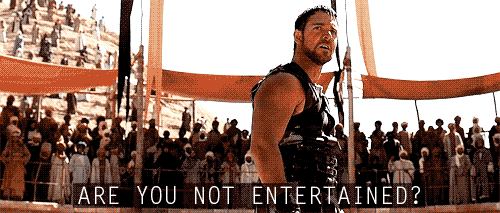
Being a dick and PvP are not the same thing. You should not use one to excuse the other and vice versa. (I have heard awful behavior justified by PvP and similarly seen legitimate PvP described as being bad/selfish/OC bullying)
I *really* enjoy PvP heavy games. Some of my friends don’t. Thats ok. People like different things in their larp.
But liking PvP comes with Stigma. I was told I was 'ruining < Redacted UK fest game>' by one of the Refs because of my opinions on PvP, I have had similar problems at 3 other systems to date. Not because of anything I did, just what I *might* do.
And a huge part of that stigma? I think it comes from people confusing being a selfish, dickish roleplayer with PvP.
If you are actively going out of your way to make a player miserable OC, to shut them out of game or using OC things IC you are being a dick.
Social PvP can be done without excluding people, in fact you can get twice the amount of game if you don't just shut people out. Oh by all means be nasty, snarky, full on Regina George, but you dont need to block people out of parts of game.
Dont take IC things OC and vice versa. Seriously, if you have a problem with someone OC, its generally not a good idea to select them as a PvP target (sometimes it cant be helped if they start something, but normally it is easy to step away). If someone does aim some PvP at you don't take it OC. These boundaries need to be rock solid.
If someone comes to you and says 'this is making me uncomfortable' talk to them. Especially with social PvP you need to be communicating about boundaries. Violent PvP is a bit different, generally because it is sudden and short lived (I may play a character who has alot of social PvP aimed at them for years, but a character with alot of violent PvP aimed at them is gonna die pretty quick).
Also, if you are gonna go down the social PvP route, have some class. Sexism, racism, homophobia, transphobia, (and to a lesser degree kit snarking) ect are shitty. They are explicitly banned in most systems I have gone to, but that doesn't mean they dont happen. Dont be that guy. Dont play the sort of character that would be that guy. There are plenty of IC things to be nasty about.
Toilet Mugging is a straw man and you will never convince me otherwise. 99% of PvP has motive. Much better to talk it out OC if you are upset then to let it fester or blame shitty roleplaying.
PvP is great, Conflict creates game. But PvP should be IC, not OC. Your conflict is with the other character, not the other player. You should never be aiming to screw up another players game. Thats not PvP, its just being a dick.
**Note: I dont consider character death to be screwing up another persons game so long as the system 1) allows violent PvP, 2) you have a motive. A real motive, not 'Im playing a serial killer'.
13 notes
·
View notes
Text
Challenging Sexism in Larp
Its been a long time since I’ve posted. I’ve been busy with running my latest game, my job and just life in general. But I need help with my new project. This will be UK based, but if people want to offer advice feel free to get in touch
Being a woman in the larp community is hard. There are very few systems I have been to where sexism hasn't been present in some form or another. Some its a small thing, easy to ignore like an insect bite, others, like Empire, it was enough to drive me from the field all together.
But I have had enough.
And I want to make things better.
I intend to run a convention next year. It's purpose would be to showcase non-male talent in the larp community, to give a platform for the voices that are so often shouted over.
All panels/ workshops and games would be run by non male people
Panels would cover feminist issues, workshops would be wide ranging from costuming to fighting to game running depending on what people are interested in and what people are willing to teach.
And of course there would be a variety of small short games to showcase the amazing amount of creativity in our community.
Please contact me if you want to be involved. I have never run anything bigger than a mid-sized game and this is a large project that will take a full team.
If you are interested in helping to run please email me at [email protected]
19 notes
·
View notes
Link
As LARPers, it’s time to kick back at the Broken Stair. Let get some nails and fix this shit.
53 notes
·
View notes
Photo
Encounter21′s ethos of reffing




There are only four rules you need to remember… (or Captain Cold’s tips for making plans)
788 notes
·
View notes
Text
When the Bodies hit the Floor: PvP and You
Everyone defines PvP differently, but at its core it is players working against other players. I find it one of the most enjoyable aspects of larp, but it is a deeply divisive topic. To a lot of people, PvP is a dirty word, evoking pointless deaths ('toilet muggings', as the UK larp lingo goes), however it can (and does) add alot to certain types of games. It is also important to understand that it encompasses a much wider range of behaviors that stabbing someone up in a dark corner. Having said that, there are some things to think about before including PvP as part of your game, both as a player and a game runner.
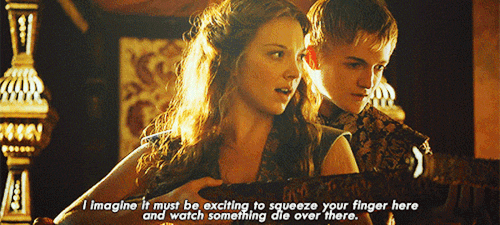
What PvP is: I (and thus this blog) define PvP as players working directly against other players. I always split it into two categories dependent on the methods being used: violent and social. Violent PvP involves stabbing people up, and is by far the most straightforward. It’s worth noting that this violence is almost always intended to be lethal. Social PvP is the act of using non-violent means to work against other players. It encompasses rumors, political cartoons, shouting down, political maneuvering, lying, manipulation, etc. It is by far the most common form, but it easily be just as lethal as direct violence in the right setting (Think Cersei in Game of Thrones. She is never the one holding the knife).
What PvP is not: I am not talking about people who simply go around killing other characters for no reason. Personally I think this is a bit of a strawman anyway; though character motivations are not always obvious, the majority of people still have them. FOIP can often make it hard to find out people's motives, and it’s very easy for hurt feelings to cloud judgment, but it always worth taking a step back from the situation. I personally recommend talking over things at debrief if you still have some negative feelings about it. You might not get closure depending on the game, but it is a good step in reinforcing your IC/OC boundaries. The other thing to remember is that PvP is rarely civil, which is where it differs from conflict. Conflict is when two players disagree, PvP is when they *do* something about it. A discussion is rarely going to be PvP, A shouting match will almost always be.
Why I dislike systems with blanket PvP bans: I agree that violent PvP doesn’t belong in every system, however I think it must be remembered that UK larp is not a collaborative story telling exercise. It is at its core competitive (in much the way real life is). Everyone has goals. Conflict is 100% necessary for a decent game. Making this kind of conflict unacceptable on an OC level causes problems. For one thing, people all define PvP differently. While it is a term that is used everywhere, I have never found a consensus on its meaning, which means certain actions will be considered as cheating by some people and not others. So let’s say you solve this with a no Violent PvP rule. For some games this is a good approach (so long as it is clearly stated. Never expect your players to read your mind), but not all. I am not advocating for completely lawless systems; consequences are a large part of Larp. However, I larp to escape feeling helpless. I can always be proactive in larp. Sometimes knowing PvP is an option (even if it’s a very dangerous, bad one) is that little extra detail that stops you feeling trapped. Having had a lot of problems with sexism at games, knowing that if things got truly unbearable *I could* address it IC (with horrific consequences of course) was the only thing keeping me sane. Think about what works for your games, but before instituting a blanket ban think about why you are doing so, and what you gain.
Harsh IC consequences are often enough to stop motiveless pvp,but leave options open for people willing to take the risk.
Bullying, Boundaries and PvP: Unfortunately, PvP can occasionally be used as an excuse to bully people, both in and out of character. By all means, play a dick, but there is an art in knowing just where that line is. Larp is meant to be fun. And while conflict and losing are part of that fun, there are times you need to take a step back and think about both the IC and OC implications of what you are doing. For example, picking on someone who has never larped before is not the same as going after a very experienced roleplayer. Of course, it can be difficult to tell the difference, and I’m not saying you should let new players get away with everything regardless of IC motivation, characterisation etc. But you should be considerate of OC factors. Similarly if you know someone has just had lots of upset with a real-life partner cheating, perhaps don’t rub similar experiences in their face in game. Its legitimate roleplay, but also makes you kind of a dick. PvP can be done in more than one way, and some is much more interesting to interact with (as the victim, or even as a bystander) than others. For example, what to do if there is someone you don’t like in your tent. You could kick them out. This is an acceptable form of social pvp, but it is a short action that has no further interaction. The person you have kicked out is gone. You could alternately let them stay but make lots of snide comments, and make it clear they aren’t welcome. This interaction will last longer thus providing more roleplay for everyone involved and also allows for much more reaction (and retaliation) on their part. While PvP is inherently healthy for most systems, there is more than one way to skin a cat. And the method that involves the most roleplay for the most people is generally the best one. If you are really unsure about boundaries, talk to people OC about them. But be warned, although people often get very upset about PvP, this doesn’t inherently mean you did something wrong; character death is often a very emotional subject. Debriefing with people afterwards is generally a good plan if your game allows for it.
There are no hard and fast rules, but I do suggest thinking about things before you do them. Good questions to ask are: Will this create game? How would I react if this was done to my character? Are there any OC factors I should take into account? Do I have a good IC reason to do this? Am I willing to deal with the (inevitable) retaliation?

Unilateral PvP: If you involve yourself in any form of PvP, you need to be ready for PvP to be aimed back at you. This is not a general statement, it is a fundamental truth. I have run several games where people have indicated they love pvp but also asked never to be targeted. This is an impossible state of affairs for a couple of reasons.
1) Anyone being immune robs all other players involved of their player agency. There must always be a way to fight back.
2) You really should not be dishing things out that you are unwilling to deal with yourself. If you think being on the receiving end of PvP is a terrible thing that will ruin your game, then perhaps you should not be inflicting it on others.
Personally, my best character deaths have all been at the hands of other players, and losing at such conflicts is as much of my definition of PvP as being the one with the dagger (or blackmail information). It is not everyone’s jam. And that’s fine. There is nothing inherently good or bad about liking different sorts of games, but part of player agency is there being consequences to actions. After all, actions are meaningless if they do not have any sort of impact. And in the case of PvP those consequences will almost certainly come in the form of more PvP. You can not play a violent, aggressive character who shouts at everyone and expect no one to take issue.
Knives-out, Knives-in: Group design and PvP: Some people don’t like PvP, and that is perfectly fair. And if people want to avoid PvP in their games that is perfectly legit. When you are designing a group for a game, I recommend having one of two policies: Knives-in (intergroup PvP is legit) or Knives-out (The group are a unit, unless something really dramatic changes in uptime all conflict should be pointed outwards). If you agree your group is Knives-out, you should do what you can to keep it that way. Sometimes characters evolve and change in a way that this becomes impossible (if your IC sister steals your IC girlfriend you don’t need to sit there and take it without comment), but you should never go out of your way to break a knives-out rule. Betrayal is absolutely some people's jam, but other people hate it. If they are in a knives-out group, chances are they hate it. OC communication is really really important for this. My first group concept one of my friends was secretly playing a nightmare cultist the whole time and betrayed me horribly leading to my character’s death. I was 100% cool with this. And it worked because she knew I was down for a knives-in group. However I have friends where something like that would have ruined their entire game. And that’s fair. The important thing is making sure everyone is on the same page. I would state however, having a knives-out group doesn’t mean the rest of your group are obliged to go along with whatever you do. Conflict can still exist. People will still play their characters, you might not all agree on every point. It just means PvP and betrayal will be the nuclear option (Think of it in terms of real world friendships. I don’t agree with everything my friends do. I am happy to tell this to them, but I don’t undermine them, pick fights or put them in bad situations on purpose).

Roundup: As always, the most important things are IC/OC boundaries and Communication. When you are involving yourself in PvP just take a second to think about motives (were you just stabbed in the dark? Ask yourself why someone might want to do that) and make sure conflict stays inside the game. If you get a chance to debrief with people you have pvp (or really any sort of intense RP with) then do so, even if it’s just a chat over messenger.
TL:DR
No one really agrees on what PvP actually is
So it’s best to use a broad definition of: Anytime you are working directly against other PCs
Never dish out anything you aren’t willing to take
Think about what is fun for both parties and how to make PvP inclusive rather than exclusive
OC communication is key, make sure you debreif.
PvP is not a dirty word
11 notes
·
View notes
Text
Guest Post: Cultural Appropriation in Larp
Our guest post is brought to you by Loretta Lok, a talented game designer and larper of many years.
*************************************************************************************
[Encounter 21] asked me to write a blog post about my thoughts on cultural appropriation and LARP.
For context I’m an ethnically Chinese person who was born in Hong Kong and now lives in London. I have been a LARPer for 11 years.
The concept of cultural appropriation needs no introduction. I seek in this article to merely highlight some examples of how I have seen it happen in LARP, some examples how it may be addressed, and in general my complex feelings about it. In no particular order, here are issues that people may want to consider.
Taking versus Stealing
The term ‘appropriation’ implies a lack of ownership of something. At heart the phenomenon of cultural appropriation generally involves taking something that is deeply connected with a cultural identity and using it for some purpose other than living that culture or that identity. I would argue here that there is a difference between taking and stealing. Taking can be honourable and stealing cannot.
I have seen more than once LARP systems that have taken elements of Chinese and Japanese culture and apply them to various non-human or human races*. This has poses two immediate problems.
1. Playing Humans
Say you are running a game that only has humans in it. If I choose to play a human of an In Character culture other than the pan-Asian race that has been written in the game, other players may be confused as to my identity, or have trouble describing me to other players without using the pan-Asian culture as a reference point for the way I look. For obvious reasons I can’t change the fact that while living in the UK I will look different from the majority of LARPers. Ask yourself how you will write your game to overcome that problem.**
2. Playing non-Humans
If I do choose to play the pan-Asian culture and that race is exclusively non-human, are you describing Chines-ness in non-human terms? If you’re going to write a race of halflings that are from a flourishing urban city state that has recently been given independence from a colonial power then what is it that you are saying about halflings or people from Hong Kong? Games do not exist in a vacuum despite LARP’s fantasy fiction roots (or maybe because of it… another discussion for another time) and your game choices have real world implications. Think about them.
The question remains is — how to take and not steal? Simply ask. Ask a person of that ethnicity, or better yet more than one person how to write elements of their culture without it being offensive. There is no simpler or more honourable solution. And ask in order to listen, rather than asking simply to cover your back. This is a complex issue with complex answers so don’t expect it to be solved easily.
Othering and Normalcy
The question I like to ask myself when designing games is why. Why would you take elements of another culture’s practice, aesthetic, history or identity to use in designing your game? My sense of the matter is that people use these elements because they are ‘other’ — because you want your players to feel like they are playing someone other than themselves or their own culture.
When I see games that are written with Chinese cultural elements I get the strange sense of looking at ‘Chineseness’ from the perspective of an outsider. The outsider is often like a magpie who takes some things that are shiny and discards others. And I can see perfectly why. The writing of LARP cultures is a naturally quite reductive process because for practical reasons handing your players a multi-volume tome of Chinese history and culture is impossible.
The solution I would suggest is to look at what your game defines as ‘normalcy’ and as ‘other.’ If the normal is Fantasy Anglo-Saxon medieval and the other is Fantasy Chinese, I would tread carefully. If the large majority of the player base is likely to choose Fantasy Chinese and the minority Fantasy Anglo-Saxon … I would also tread carefully. What is normal in Chineseness for you is not normal Chineseness for me.
Artistic Inheritance
I don’t think it’s necessarily a bad thing that people who write LARPs are really interested in Chinese culture and history, and want to incorporate it into their games. It can be a form of soft power for the visibility of that minority in the UK. It is my pragmatic view that ownership of culture is difficult to establish and control, and that there is among artists always an ebb and flow of ideas. It is when a dominant culture seeks to constrain the minority culture via their majority that the influence can seem oppressive. And I suggest that writing reductive caricatures of pan-Asian elves is one way in which that influence shows itself.
I have had numerous heated discussions with my dear British husband about ways in which questions of artistic ethics (and I do consider game designers to be artists) can be resolved. And I think some of the issues cross over***.
Say you are writing some music using the pentatonic scale**** and you are of British descent. Have you as a composer educated yourself about the context and history in which the pentatonic scale was created? How have you sought to express that education in your music? Do you give credit to your sources in your album’s insert? What are the connotations of the use of the pentatonic scale to people of Chinese descent in modern day Britain?
The same questions apply to creating LARP games.
I think it’s important that we allow the ebb and flow of artistic ideas to occur, and that we should consider it our inheritance to be able to use whatever is at hand when creating art. But I’d like to see a shared future in which minorities in Britain can take part in shaping perception of their culture, history and identity.
*For ease of discussion I refer to races as human/orc/elf etc and ethnicity as Chinese/Caucasian/South Asian etc. There are some real world complexities here in the use of these terms but it’s not important to this particular article.
**I have experienced this problem first hand. No, really.
*** I am however by no means an expert in music.
****Although, for an amazing, expert view on this piece of history, check out this article https://historyofmusictheory.wordpress.com/2017/04/12/chromatic-scale-construction-in-ancient-china/
6 notes
·
View notes
Text
The All Seeing Ref and Other Mythical Creatures
People often have this perception that refs are all knowing, that they see all that goes on in the field, that they have an innate knowledge of what is going on. We don’t. I couldn’t tell you what happened at my last 3 games outside the broad strokes. All information is gathered from scattered crew reports, the snapshots I saw. I certainly missed 90% of what went on. Which leads to a couple of interesting problems. 1) Designing mechanics and plot that don’t require the refs to be omniscient. 2) Understanding how players will use information to make decisions. I joke a lot about players doing random and nonsensical things, but to the players those decisions make perfect sense.

Accepting Limitations As a ref you will not know everything that is happening in uptime. Its not actually possible. Players will have meaningful interactions and do things where you can not see or hear them. As such, you need to make sure that nothing in the game *requires* you as a ref to know these things.
There are lots of really cool troupes that use omniscience that work really well narrative. Gods, AIs. Psychics ect. Unfortunately physreping these things is almost impossible. Having an all knowing god that will hunt players if they sin is great, but ultimately players can easily sin where the refs cant see them. Similarly an AI with a an algorithm to see the future would be epic, but unless you are running a very tightly narrativistic (and low agency) game, you aren't going to know the future to tell the players.
Workarounds So there are a couple of ways to increase information flow to the refs. I’m not convinced all of these are *good* ideas mind, but they are possible if you have a resources. The best way to get more information is to debrief crew as they come back. You will that way get snippets of what is going on. Keep in mind you will still not be getting a full picture from this.
You can have refs always around the IC area, either IC or OC. Not a bad solution, but you need to make sure you still have a ref dealing with crew. Again, this wont let you see everything, but you will get more information this way then scattered monster reports.
If you have enough crew, crew plants can be a very useful thing. But they will need to be careful not to reveal themselves.
Bugging the players. Expensive, and I’ve only ever actually seen this done at a game which was designed as a business venture rather than true larp, but it will let you keep an eye on things.
Self Reffing. This works well if you trust your players, and for certain things is a necessity. If your god will strike you down if you break a rule for instance, its best to let the players handle that themselves. After all, they will know if they are breaking the rules far better than you as a ref will.
Dead Wood Lice The dead wood louse test was something that was often bandied about my university larp society. The idea is any encounter must be simple enough that three dead wood lice would be able to navigate it. Now it has been pointed out to me that this is quite insulting to players. They are not as dumb as all that.
However, it does communicate something important, you should make sure things are kept simple. It is very easy to underestimate how difficult an encounter is when you have all the information and you are sitting comfortably rather than under pressure. But it is important to remember
1) Players are almost always working with incomplete and biased information.
2) Players are almost always working under some form of pressure, be it from external (plot or monsters) or internal (other players) sources.
Information dissemination Refs often have a different view of games from players. This didn’t really hit me until I discussed an event with my housemate who had crewed. We had blown something up, which he had been under the impression we were trying to fix. We at no point had wanted to fix this thing, but the refs and crew thought that this was our goal, and thought that we had failed badly. We thought we had had a marvelous success.
We had several very well reasoned arguments for blowing this thing up. But the refs had taken a very different approach. Both were valid. But I think it illustrates a very good point. People act on the information they are given. And the information (which starts in an imperfect form anyway) has invariably passed through NPCs, cryptic writing, PCs and various assumptions and biases have been added.
So how do you as a game runner control for this? The first thing it so accept its going to happen. There is to some extent nothing you can do. Players and refs will always be operating on different sets of assumptions. The best thing you can do is roll with it. You can however do things to try and make it better. You can make sure any bit of information has several points of entry. You can run bits of your plot by people who are not playing your game (sanity checking is big and clever). You can try to make sure things are not overly complicated. If you can not explain it to a crew member there is no way the players will get all that information.
TL:DR
Refs are not all knowing
As such you should avoid running plots or using mechanics that require refs to know what is going on at all times
Remember that players will get information in drips and drabs, and thus their goals and decision making might not be what you expect.
24 notes
·
View notes
Text
Some Musings on Rule 7
This is as much my personal feelings on the matter as it is game design advice. Take that for what its worth.
Rule 7: Do not take the Piss. I don’t know the origins of rule 7, and I don’t particularly want to. It has an almost mythological quality, rule 7. It gets thrown around by almost all larpers I know, no matter what system. It is the cardinal rule of Larp. The one everyone is meant to follow.
It is of course not that simple.

Everyone’s definition of not taking the piss is different. And I am terrified whenever I go to a game I will violate this sacred trust. It’s awkward this, I acknowledge other people break it (or at least in my view they do), and it doesn’t particularly bother me (well there are some extreme cases where it has impacted my game directly, but mostly I don’t care). But the idea I might fuck up terrifies me.
Which brings me to an interesting dichotomy. Player led and ref led systems. I personally much prefer ref led. I like rules. For me they define the parameters I can play within. I had a very bad experience a couple years ago with breaking unwritten rules (I’m still sure exactly *what* I did, but apparently it was a problem) and getting pulled up on it by the head ref (out of a player base of 600). I do not like unwritten rules. I do not like not knowing where I stand. Knowing the edges of things keeps you safe.
I recently attended a player led game, the only rule was rule 7. Most people were amazingly good with that, much more than I had expected (player creativity was mainly used to make things *worse* for our band of horrible misfits not better). It was awesome. But I did not get involved in much. I was very scared that my ideas would not be good enough, that I would accidentally contradict the refs or other players, that I would in short fuck up. So I left things vague and my interactions focused on uptime. I solved no problems (I created none either. It was a bit of a wash for me as a participant though I very much enjoyed the experience). And I am ok with that.
Ref led games are much more my comfort zone. I know where the boundaries are. I know what I can and cannot do. I know who and what my character is. Pre-written characters take this further. My character is designed by the refs. She fits into setting by default. There can not possibly be something I missed. Nothing for me to screw up. I can simply get on with playing her. My motives are beyond reproach, I have been given permission.
I am most definitely an achievement larper. What I get out of games is the feeling of having *done* something, of mattering for good or ill. In some ways the rules light games feel less like an achievement, the triumph of narrative over my actions. I am unworthy of the spotlight unless I earn it. Again the specter of Rule 7 lingers.
I have enjoyed both types of game, and also despised both types of game. There is more to good game design than your approach to rules (I also think both of these systems are as valid as each other), and more to an enjoyable event than game design. But I find it interesting that I find the myself much better to function in a restricted game, where theoretically I have much less freedom.
I guess my thoughts are these. Different people have different comfort zones. For me having pages of brief and a well defined world is freedom. I know the edges, I can find my space. For other people freeform larp preferable.
6 notes
·
View notes
Text
Whose job is it anyway? On the nature of ‘fun’
This is a slight departure from my normal rants about game design, because I’m going to touch on what I think is good etiquette both as crew and player as well as my normal opinions on being a ref. That is because I’m going to attempt to answer the age old question of: Whose responsibility is it to make sure the game is fun? It is not a simple question to answer, because it isn’t entirely one person’s job. The running of a successful game requires some work on the parts of everyone involved, be they refs, crew or players.
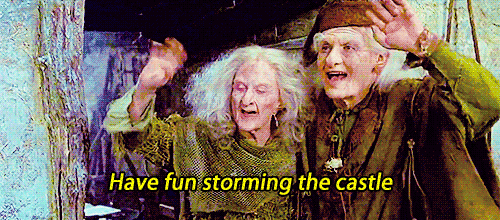
Refs: I have talked about this at greater length elsewhere, but I think its worth mentioning a few points. Alot of people feel that making sure the game is fun *is* the refs responsibility. I would say it is more accurate to say that the refs job it to make sure the players *can* have fun.
This is I feel more dependent on running the game you sold rather than micromanaging each players experience. If the players have shown up expecting a nice regency picnic, then you should give them a nice regency picnic, not horrible grim survival horror scenario (unless you sold grim regency survival horror picnic larp, cause I would totally go to that).
If players come to you with complaints, you should hear them out. Assess why they are not having a good time. If they are asking for advantages you are not giving other players*, or for you to do something that is outside the tone and scope of the game, ignoring their requests is most likely better for the game as a whole. Remember your player base is bigger than any individual person, and you have a responsibility to the greater whole.
If you notice players not getting engaged, try to assess why. Aiming plots at people who seem to be having trouble getting involved is legitimate, but again you need to take a step back and look at how this will affect the game as a whole. At a fest larp running a plot solely for one person is a waste of crew resources, at a smaller game it is a good way to get people involved.
The Ref’s role is to provide a framework for fun
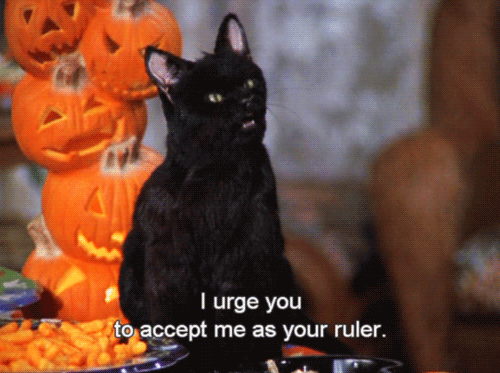
The Crew: I have alot of feelings about crew. Crew make your game run. They are important and should be treated as such.
Having said that, crew have a job to do, and part of that job is remembering that if you are crewing you are not playing. There is a difference. NPCs should by all means be fully fleshed out. Make them real, that adds very much to the game. Give your NPCs motivations, drive. Don’t just role over and let the players win. BUT remember you are ultimately there to help the players have fun.
Some people talk about Larp in terms of ‘time in the spotlight’. I think this is very useful when thinking about the difference between crewing and playing. Crew should not be taking spotlight time away from the players. The game is not about NPCs. It is about the players. This means crew should not be solving problems, they should not be the big damn heroes. NPCs should be the sidekicks, the footnotes, the strange encounters that move the story along. Even if they are big and grand (I thinking of bad guys mainly here, but I guess gods, royalty ect) their interactions should still primarily be about the players experience not theirs.
This doesn’t mean crew roles shouldn’t be fun. Ultimately any crew role you write in should be enjoyable for the crew (If its not, a ref should do it. Shit roles are for refs. Cool ones are for crew.). It just means crew often need to take a step back from the spotlight.
Crew also need to remember to come back and check in occasionally. Do not become an accidental PC. Random villager #5 does not need to hang around with the players for 8 hours. When crewing ask yourself 1) what is this adding to the player experience 2) Have I done what the refs told me to do 3)Will continuing this encounter ad anything more to the game
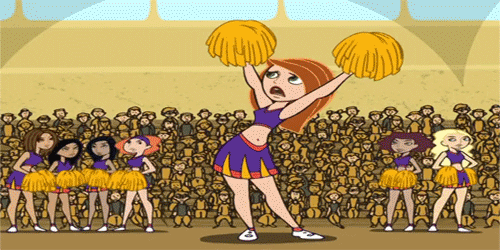
The Players: Ultimately I believe players are the ones most responsible for their own fun. Everyone likes different types of game. Players should make sure they go to games that sound like their jam (I know this sounds obvious, but I think sometimes people want to do the *cool* thing or the thing all their friends want to go to and make themselves miserable). Players should make sure they buy into the game (don’t show up to a regency tea party in space marine armor playing a murder bunny). Players should try and make sure their roleplay is inclusive (important note: you can be inclusive while playing an utter dick. I don’t by any means mean you need to play a nice character who loves everyone. In fact I’m of the opposite opinion in most cases.). Being inclusive is about making sure you
1) Don’t hoard plot. Ask other characters for help, advice, or simply to get involved. Delegation is big and clever. Spread the angst. If you have documents, don’t just sit on them, blackmail someone, show someone, ‘accidentally’ drop them.
2) Try to avoid shutting people out. You have a right to only roleplay with who you want to play with, but if your problem is IC I advise playing that hatred in a way that lets you still interact with the person (snide comments, mean girls type roleplay, challenging them to a duel).
3) Share the spotlight. Let other people be awesome.

TL:DR
Crewing, Reffing and Playing are all distinct experiences that require different approaches to the game
Refs are there to make sure the game runs
Crew are there to give players a framework
Players are there to do their thing, but should buy into the game
All three roles are responsible for making sure a game is fun, but the biggest responsibility is on the player.
*Its worth noting here, I am not talking about making games more accessible for people with disabilities. That’s a legitimate complaint, and you should always try to make your games accessible.
17 notes
·
View notes
Link
The awesome person who runs this has helped me with alot of my game design. I highly recommend Access Larp as a game design resource
This is where you find the Accessibility Guides for LARP.
There are three guides currently available:
The Guide to Accessibility for LARP - a general guide covering a range of physical access needs and some mental health and neurodivergent considerations including learning disabilities such as dyslexia. The Guide takes you through every step of planning and running a LARP and how and why you may implement accessibility.
The Guide to Mental Health Accessibility for LARP - This guide is focused on mental health issues from anxiety to OCD as well as neurodivergence. It goes through every step of LARP design and running and gives lots of examples of how and when you may include mental health accommodations.
The Guide to Accessible LARP Documents - This guide looks at how you can make any written aspect of your game, from initial online presence to documents in game, more accessible. It gives plenty of examples so you can consider the range of reasons people may need more accessible documents and ways of integrating that accommodation in to your game
10 notes
·
View notes
Text
Openness, Comunication and Game Design
I’ve had a bit of a revelation in the past month. In the UK there is no formalized way of talking about larp, and there certainly isn’t any central school of thought on the matter. One the reasons I am so obsessive about defining terms on this blog is because I know when I say something, even something as simple as PvP there are *many* *many* ways to interpret it.
I have talked about what you should include in game advertisements before, being honest about what you are selling is massively important. Normally the things I think of are: What type of game play it is (fighty? talky? investigative? big damn heroes? every day people? sneaky bastards?), threat level, lethality level, any trigger warnings, and the accessibility of the game, mechanics, rules on PvP, E&D policy, ect.
I think I need to add an adendum. Talking about you philosophy of game design. For instance, agency and proactive play. Games rarely talk about their stance on the agency vs narrative line. But to me as a player that is a deal breaking point. Similarly opinions on right to fail and right to succeed, and how to deal with the unexpected, and how proactive players are *expected* to be are important. But they are almost never talked about outside of IRL conversations with refs, or people running blogs like this one.
So, for the new year, when I launch my website for Broken Mirror Larp group, I am going to include a philosophies of design page, and possibly a design blog specific to the games we are running.
I encourage you to do the same with whatever games you are involved in.
13 notes
·
View notes
Text
The Unspoken Rules: Social Contracts, PvP and Rule Systems
I’m going to start this by saying I despise the idea of unspoken rules. I have however run afoul of them at a couple of different systems, and they do seem to crop up alot. When we design games we take with us all the assumptions we make about larp, whether it be our approaches to E&D, how combat functions or our opinions on PvP. Its very easy to fall into the trap of thinking that because these assumptions are wide spread in your little pocket of the larp community they must be universal. For instance before I went to a big fest larp I didn’t realize that PvP wasn’t necessarily an expected and welcomed thing at all games. Or that you needed to make explicit rules forbidding sexism/racism/ect. So here is my quick run down on social contracts.

So the idea of a social contract is that its all those little unnspoken rules we all by into. The social contract dictates I shouldn’t just go up to random people in the street and tell them they are ugly. It’s not illegal, but its not OK either. Social contracts are important to how society functions. After all there are many behaviors that fall into the gap between illegal and socially acceptable, and it would be impracticable to legislate them all.
The issue with social contracts, as I have mentioned above is that when it comes to Larp there isn’t really a group of accepted norms. All systems have their own little group of social expectations, which is fine, but I’m here to argue that you really ought to be explicit about these assumptions. Otherwise you will run across people form completely different larp background who will unknowingly break this contract.
So. What sort of things are need to be covered then?
E&D
The first, and in my opinion, the most important is Equality and Diversity. I have spoken at length elsewhere on my blog about the need for good E&D policies, but when I started larping and game running it never occurred to me I would need one. After all surely you can trust people not to be horrible based on gender/race/sexual ornamentation ect. That one is supposedly covered by OC social contracts. Alas, 6 years of larp have disabused me of that notion, and having a rule set means you can act on it. It also means no one is coming to your game with false expectations of what is and isn’t allowed and will be tolerated by the game team.
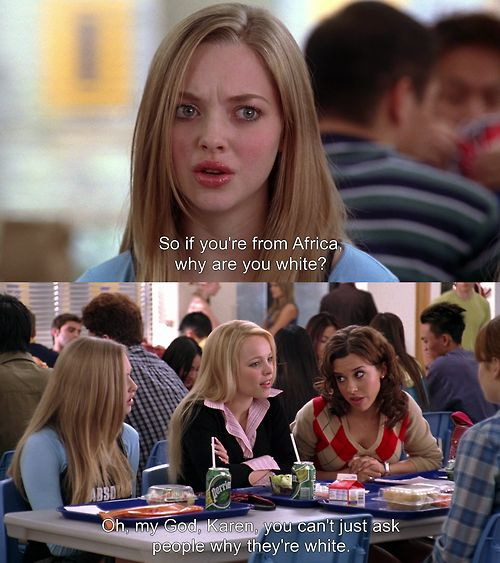
Fighting (OC safety)
Different systems have different expectations of what is ‘safe’ combat, and new larpers often wont have been given any training at all. Make sure there is a call (most UK systems use Man Down) that means someone is OC injured. Make sure people know this call and don’t use it IC. Make sure people know not to stab, to pull their blows, what the standards are for archery. Is your game grapple safe? Should people stop and check before grappling or is at an assumed part of combat? When you die/get knocked out do you lie where you fell or can you get out of the way? Who are the first aiders? What should players do if there is a medical emergency? What sort of weapons are acceptable
If you are running a game in which weapons will be found on site, you may want to pass around an example of what larp weapons actually look like and explain that using an actual lead pipe may be bad idea (Not a joke. This happened at a game I was at). Remember there is a chance you have people who have not larped before, or who come from very different backgrounds.
Fighting (Expectations)
Some systems expect and encourage show fighting, some want more competitive fighting. There is no one true way. But people are likely to get upset if not everyone is on the same page. Should people be roleplaying their wounds? Should you take more damage if it makes narrative sense or are you ok just taking the mechanical call? When your character is healed can you ignore old wounds or are there lasting rp effects? Again there is no one true way, but its best to make it explicit what your system is going for if only to cut down on grumbling about people ‘playing the game wrong’
PvP
I guess this is sort of a subset on fight expectations, but its one that has bitten me enough times that I want to give it its own section. Also non violent PvP is a thing that also should be talked about. Are characters expected to all get along and support each other? Are non violent disagreements and conflicts ok? Violent ones? Are there places in your game where PvP is allowed and places where it is isn’t?
If you have not specifically said PvP is not ok in your system, that means it is by the rules allowed. Now IC consequences are a thing, but I’m simply talking about OC rules here. I know people tend to have strong feelings on PvP and its acceptableness. And that’s fine. There is no one true way. But you need to have these feelings codified in your rules. I will not go to games that don’t have explicit statements about PvP anymore. This is because twice it has been allowed by the rules but considered an egregious breach of social contract when it happened. It is obviously a topic people get emotional about, which is why it is so important to codify in a way that is very very clear.

IC/OC boundries
Some systems expect you to be IC all the time and are predicated around high immersion. Some aren’t. And again, there is no one true way, but it is important to state which type of system you are running. Don’t expect players to read your mind. Sometimes there are some spaces where being OC is ok, sometimes there aren’t. Be clear. Make sure everyone knows what is expected of them.
The same goes for infomation. I have talked about stonewalling and FOIP before so I’m not going to rant about it here. Just let everyone know where they stand. Not all people make the same assumptions about information gained OC.
TL:DR
Be explicit when writing your rules
Unspoken rules are nobodies friend
#larp#lrp#rules#social contract#pvp#information#live action roleplay#running larp#running lrp#game design
8 notes
·
View notes
Text
What a Player Wants: The difficult gap between what is said and what is meant.
Communication is important. It is important when advertising your game, when writing it, when talking to people afterwords. I personally tend to run games in which the refs generate characters based on player requests, and obviously that magnifies the problem of communication. Have you seen the meme of What I wrote, What the refs saw, What I played? There is often a noticeable gap between the three things. So how do you as ref deliver what the players want?

I would like to say that while I believe in making games as enjoyable as possible for as many people as possible, I do not believe in giving players everything they ask for, or even everything they want. There is a balance that needs to be struck, giving your players agency means letting them fail sometimes. But enough disclaimers, lets address the fact that figuring out *what* players want in the first place is a difficult matter.
The first step is to screen your players with your promotion material. Be honest about what you are running. The people who want what you are selling will come. The people who don’t hopefully will realize your game isn’t their jam and give it a miss. This hopefully will mean most people will start on the same page.
Of course then you hit the issue of definitions. When I use the phrase PvP or High Threat to describe my games, that might mean something different to the people reading my game description than it does to me. Talk to people, engage with the people booking your games. If you are asking for player generated characters make sure your generation form has questions that make the players think about what they are playing and how it fits into your world.
Example:
What are your characters short term (one event) goals?
What are your characters long term goals?
What is your character afraid of?
What does your character care about above all things?
There are more questions that are useful, but especially those first two give you hooks for plot and an idea of what players are trying to accomplish. Now that doesn’t mean you have to give them those things. But it does mean as a ref you have a better understanding of what is driving those characters and what sort of things they want to engage with.
With Ref gen characters its a good idea for your booking form to ask alot of questions. Sometimes its a good idea to ask the same question more than once but worded slightly differently. For instance someone saying they like ballgowning doesn’t automatically mean they want romance plot (even though those things are often lumped in together). Equally someone who likes PvP may say they don’t want to be the target of someone else’s grudge. Which means their opinions on PvP are perhaps not as straight foreword as previously assumed. The point is people and language are both complicated. Phrasing things differently can help get at the complexities and let players give a more accurate picture of the things they want from your game.
Even with all these questions, it is still important to think about what your players mean when they ask for things. Tropes and the *feel* of a character can on occasion be quite divorced from game play. What do I mean by that? Story time.
I ran an event in which four people asked to play assassins. This is not hugely surprising in and of itself, the setting was a fantasy version of Venice and it fit very well with the themes and tone the event was advertised as having. What did come as a surprise is that despite all being given a wide host of both PC and NPC targets all with quite hefty rewards on them (in items, money and power) there was not one assassination at the event. Now I don’t mean this in a critical way at all, people played their characters and had fun and as a ref thats really all I can ask for, but it did make me think about how to contextualize player requests. I don’t regret giving them what they asked for, but it was a good thing they also had other plot threads to chase.

What players ask for is not always what they *want*. So its a good idea to have more plot than that they explicitly asked for. Give them options. My assassins may not have been interested in stabbing people up in dark corners but not one complained of having nothing to do. They simply found other bits of the game more interesting.
Now some people will ask for things that are unreasonable. Power far over the event’s general power level, or to have advantages the other players are denied. You are under no obligation to give these players what they ask for. Depending on the exact demand sometimes a compromise can be reached. Talk to your players. Try and find out what exactly they *want* to get out of your game. Its a question people don’t really think about, and that very few refs ask for. to have fun yes? but there is a level beyond that. How? What will give them the fun they are seeking? Do they like hiding in ditches? Being a big damned hero? poking metaplot? hitting big red buttons with their face?
TL:DR
Communication is hard
Phrase questions in multiple ways or ways that ask for information more explicitly
What players ask for is not always what they *want*
So give them options. Take them at their word but also have a little bit of extra
Listen to your players. Say no occasionally.
#game design#larp#lrp#live action roleplay#communication#talk to your players dammit#the difference between wanting and asking for#Questions are your friend
14 notes
·
View notes